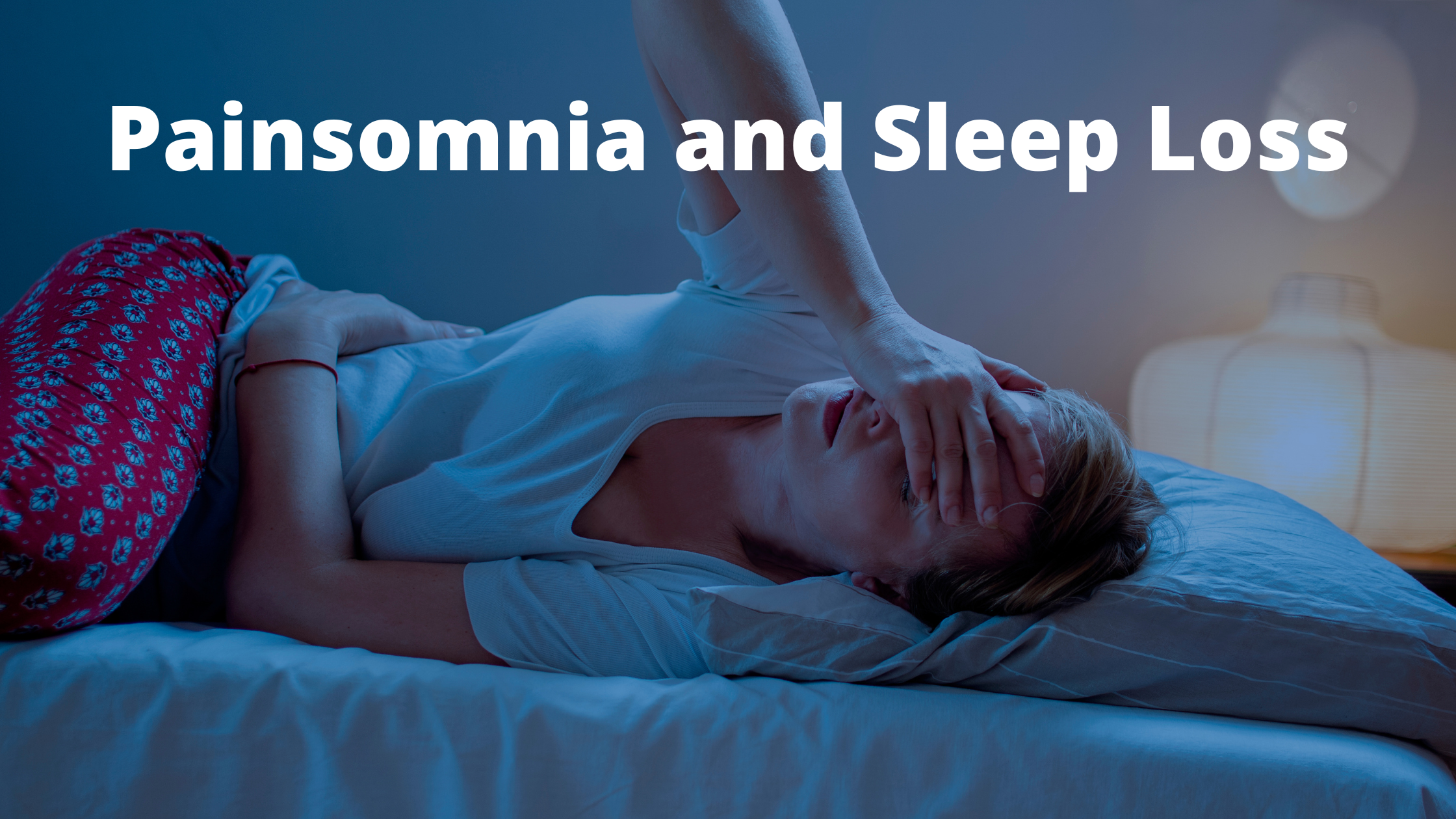
Insomnia is the inability to go to sleep. Primary insomnia means there is no underlying reason why you cannot go to sleep, but you are simply having trouble getting a good night's rest. Secondary insomnia is an identifiable cause that is preventing you from going to sleep.
One common secondary cause is painsomnia. Painsomnia is a term that combines the words pain and insomnia, and refers to insomnia caused by pain. Paincan making sleeping almost impossible, as you are unable to relax enough to go to sleep. Not only does painsomnia make it impossible to sleep, but having a lack of sleep can make pain symptoms worse. So it very much is a double edged sword, the relationship between sleep and pain.
Continue reading to find out more about painsomnia and what are some steps you can take to reduce the disruptions you currently face.
What is painsomnia?
Painsomnia is the term created for patients who have difficulty falling asleep or staying asleep due to chronic pain. Painsomnia is a colloquial term, not something used by medical professionals, however, it is recognized by the American Academy of Sleep Medicine as a sleep disorder. Therefore, if you are experiencing this, it is a real thing.
Pain is an unpleasant sensation that the body signals to the brain. It alerts the brain to something being wrong and needing attention. Acute pain goes away in a short amount of time and normally has a clear identifiable cause. Chronic pain, however, is long-standing and normally doesn't have a clear cause. There also is no timetable for when the pain will go away. More than 25% of people in the United States report experiencing chronic pain.
Insomnia is a common sleep disorder, as 75% of people who live with chronic pain report symptoms of insomnia. Chronic pain and sleep issues have a bidirectional relationship, with pain making it hard to sleep and a lack of sleep worsening the pain.
Symptoms of painsomnia
Common symptoms may be different for everyone because pain is subjective. This is why it is so difficult to treat because there is not an observable issue with a clear solution.
Pain is chronic if it persists for more than three months and waxes and wanes, and/or is associated with a chronic health condition like arthritis, diabetes, or cancer. People who live with chronic pain may have sleep issues along with other symptoms, i.e. fatigue, loss of appetite, digestive issues and mood changes.
Insomnia from pain can lead to insufficient sleep or poor sleep quality, even though someone is in bed and has the opportunity to sleep for a long time. Therefore, if you are lying in bed, but just unable to go to sleep, then you may be struggling with painsomnia. The issues aren't just exclusive to the night, but can also come come with fatigue, trouble concentrating, low energy, and excessive thoughts or worry about sleep.
Causes of painsomnia
The connection between pain and insomnia is not fully understood, but studies suggest that a person's sensitivity to pain follows a circadian rhythm, or a 24-hour cycle, just like our sleep. This means just as our body gets ready to go to sleep, here comes the pain, right on time. The greatest amount of pain can be felt at night, reinforcing that idea.
There are many chronic medical conditions that can cause painsomnia. They may contribute to pain and insomnia, and include autoimmune disorders, degenerative disorders, and neuromuscular disorders. A list of these disorders include:
- Rheumatoid arthritis
- Osteoarthritis
- Axial spondyloarthritis
- Fibromyalgia
- Peripheral neuropathy
- Endometriosis
How is painisomnia treated?
Treatment for painsomnia differs depending on the sleep-related symptoms as well as the source o the pain. It can be difficult to determine if pain is causing the person's insomnia, or the other way around, so doctors typically treat both at the same time.
Chronic pain is treated based on the source and can include a variety of options, including pain medications, therapy, acupuncture, massage, psychological support, and specialty treatment at a pain clinic. Treatment varies depending on the severity and type. But, it's important for you to talk to your doctor and figure out what is the best option for you so you can get a good night's rest.
In addition to proper pain management, there are certain behavioral methods you can try, such as a good sleep hygiene, a comfortable sleep environment, and making some changes to your sleeping surface so it complements your body and eases some of your pain.
Please click the orange button to take a free online sleep test and talk with one of our sleep health professionals as soon as possible.
https://www.sleepfoundation.org/physical-health/painsomnia

